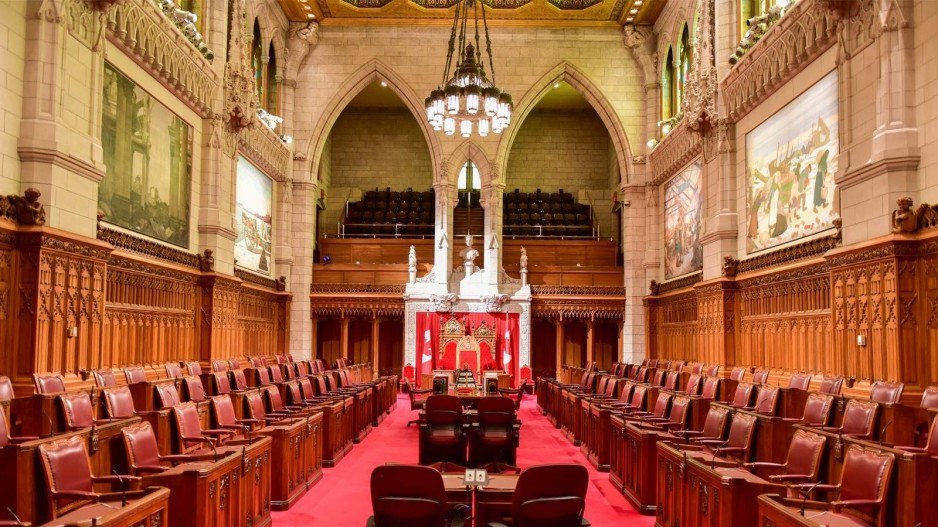The Canadian Senate voted to approve the Cannabis Act by a vote of 56-30 with one abstention just after 6 p.m. B.C. time on June 7.
More than 40 amendments were made to the bill, which now must go to the House of Commons to have those amendments approved. The process for how a bill becomes law in Canada is that when the Senate amends a bill from the House of Commons, both chambers exchange messages until they agree on the final text of the bill, according to a Senate of Canada infographic.
If both houses of Parliament agree on a final text of the bill, C-45 would then proceed to get royal assent and full implementation likely within eight to 12 weeks.
Dozens of senators stood to give speeches, which were capped at 15 minutes each, and many accepted and answered questions during the approximately eight hours of proceedings that preceded the vote.
Language in some of the speeches was testy.
Nunavut senator Dennis Patterson, for example, was vehemently against the bill passing.
"There will be casualties. There will be mental illness. There will be brain damage. There will be deaths," he said, before adding, "Now I may be accused of being alarmist.
Other senators saw the bill as a positive step forward.
"What do we do?," asked Quebec senator Andre Pratte. "Do we take a deep breath, close our eyes and stick with a demonstrated failed, hypocritical, unhealthy, prohibitionist road of the past? Or do we move forward, eyes wide open and choose the alternative?"
B.C. senator Yuen Pau Woo, who supported the bill and is part of the independent group of senators, said in his speech that he was originally concerned about the bill allowing provinces to set the minimum age to use cannabis at a level as low as 18 years old.
On June 6, the Senate's Conservative caucus had tried multiple times to raise that age.
Senator Rose-May Poirier first proposed an amendment to raise the minimum age for cannabis use nationwide to 21 years old, and that proposal went down to defeat by a 47-31 margin with no abstentions. Minutes later, senator Denise Batters proposed the same amendment only with a lower age: 19. That failed by a 47-29 margin, with one abstention.
Woo, however, in his June 7 speech said that he has since come to accept that the legal age to use cannabis should be at the age of maturity in each province.
He commended the Senate for making almost 50 amendments to the bill and said that this is not a sign that the bill is fundamentally flawed, but rather that Parliament's upper house is living up to its role of providing sober second thought.
Earlier in the day, another B.C. senator, Mobina Jaffer, who also supported the bill, dedicated most of her speech to implore the government to fund a massive education program so that Canadians are aware that if they tell a U.S. border guard that they have smoked marijuana that they will very likely be banned forever from visiting the U.S.
She invoked the name of Ross Rebagliati, who won a snowboarding gold medal in the 1998 Winter Olympic Games and was originally stripped of the medal because he tested positive for the active ingredient in cannabis, THC (Tetrahydrocannabinol). He wound up having continuing problems crossing the U.S.-Canadian border.
Not all B.C. senators supported the bill.
B.C. senator Yonah Martin, for example, said that although she believes in decriminalization of cannabis, this is not the time to allow recreational sales in a fully legal environment.
Not only are there health risks to consuming marijuana, she said, but there are also risks to Canada's international standing, given that it will be the only country other than Uruguay to legalize cannabis on a national basis.
"With growing concerns, and the growing number of calls and emails that we are all receiving, I just feel as though this is not the time and that the risks of legalization, no matter the financial benefits, is too high," Martin said.
@GlenKorstrom



